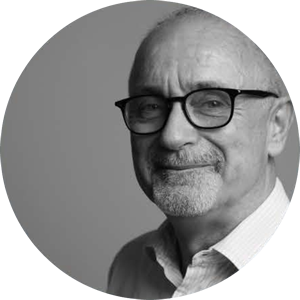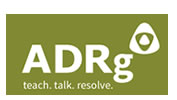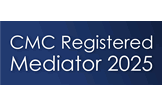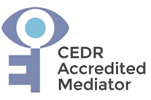
All About People
Need help to resolve your business, personal or employee conflicts & disputes?
Stay up to date with our latest news and workshops.

Conflict theory, particularly in the sociological sense, helps illuminate these dynamics. Karl Marx, often referred to as the father of social conflict theory, argued that conflict is inherent in social structures, particularly where there is an imbalance of power between groups, owners and workers, managers and employees, the system and the individual. While few workplace mediators might quote Marx at the table, the underlying idea -that conflict often arises from inequality, competing interests, and structural tension - rings true in so many workplace cases.
But theory doesn’t live in the abstract. It shows up in performance conversations, change programmes, restructures, and resignations. And that’s where the work of people like Kenneth Cloke and Joan Goldsmith really resonates. In books like Resolving Personal and Organizational Conflicts and The Art of Waking People Up, they challenge us to see conflict not as a problem to be managed or a fire to extinguish, but as a signal, something asking us to look deeper. They describe conflict as a doorway to transformation, and in my experience, that rings powerfully true.
I’ve worked with employees who are labelled ‘difficult’ but are, in reality, people who feel unheard or unseen. I’ve supported managers who, behind the procedural armour, are simply overwhelmed and unsure. As Cloke and Goldsmith suggest, the challenge is often not about resolving the conflict but about waking up to what the conflict is trying to tell us - about leadership, culture, belonging, or fear.
While conflict is often viewed as a setback, my experience has taught me it can also be a powerful catalyst for growth and innovation, if approached with care and skill. In this blog, I share stories, insights, and hard-won lessons from the field in the hope they will inspire a more constructive and confident approach to workplace disputes.
Over the years, I’ve worked with many super HR professionals who have shared practical and lasting strategies for handling workplace conflict. Some of the most effective approaches include:
These tools consistently help create meaningful, lasting resolutions that do more than ‘fix the problem’, they often strengthen relationships and build healthier workplace cultures.
What great leaders teach us about conflict
Some of the most impressive conflict resolution I’ve witnessed has come from leaders who meet disagreement with curiosity instead of defensiveness. One senior executive I worked with stood out in this regard every time a conflict arose, they would ask, ‘What can we learn from this?’ rather than ‘Who’s to blame?’
That mindset didn't just resolve the conflict at hand, it also helped shift the culture around them. People began to feel safe raising issues earlier and more constructively. When leaders treat conflict as an opportunity for learning and progress, rather than punishment or failure, they model a powerful standard for others to follow.
Other scholars like John Burton have made major contributions to our understanding of these dynamics. Burton’s ‘human needs theory’ shifted the focus from power struggles to the underlying psychological and social needs that fuel disputes—needs for identity, recognition, and security. In the workplace, when people feel these needs are denied, conflict becomes almost inevitable.
I’ve also found the Thomas-Kilmann Conflict Mode Instrument useful in coaching teams and individuals. Based on Blake and Mouton’s earlier managerial grid, it offers a helpful language for how people do conflict, whether they tend to avoid, accommodate, compete, compromise, or collaborate. It’s not a perfect science, but it’s often a great conversation starter.
The point is: conflict is not just about personality clashes or HR policy breaches. It’s about power, meaning, identity, fear, and change. That’s why mediation, when done well, holds such potential, not just to ‘resolve’ but to reveal. To create space where people can be heard, understood, and, sometimes, changed.
It’s not only leaders who shape how conflict is handled. I’ve seen employees completely change the tone of their teams by adopting simple, empowering communication tools. One team member I supported had grown frustrated with being constantly interrupted in meetings. Instead of letting the frustration fester, they chose to calmly use ‘I’ statements and active listening techniques to raise the issue with their team.
The result? The dynamic shifted, their confidence grew - and their example encouraged others to speak up respectfully as well. It was a perfect reminder that everyone, regardless of role or rank, plays a part in creating a healthy workplace culture.
Conflict resolution isn’t just a useful workplace skill, it’s a career-changing, relationship-building, wellbeing-supporting superpower. Whether you're an HR practitioner, a line manager, or a team member, learning to approach conflict with empathy and clarity can transform not only your workplace but your entire working life.
At All About People, we’re passionate about sharing these approaches. From bespoke training sessions to hands-on workplace mediation, we help individuals and organisations find a better way forward together.
If you’re interested in discussing mediation or improving how your organisation manages conflict, we’d love to hear from you. You can reach us at geoffrey@allaboutpeople.uk

Strategic Advice and Guidance for you and your organisation. Our accreditations:




Stay up to date with our latest news and workshops.